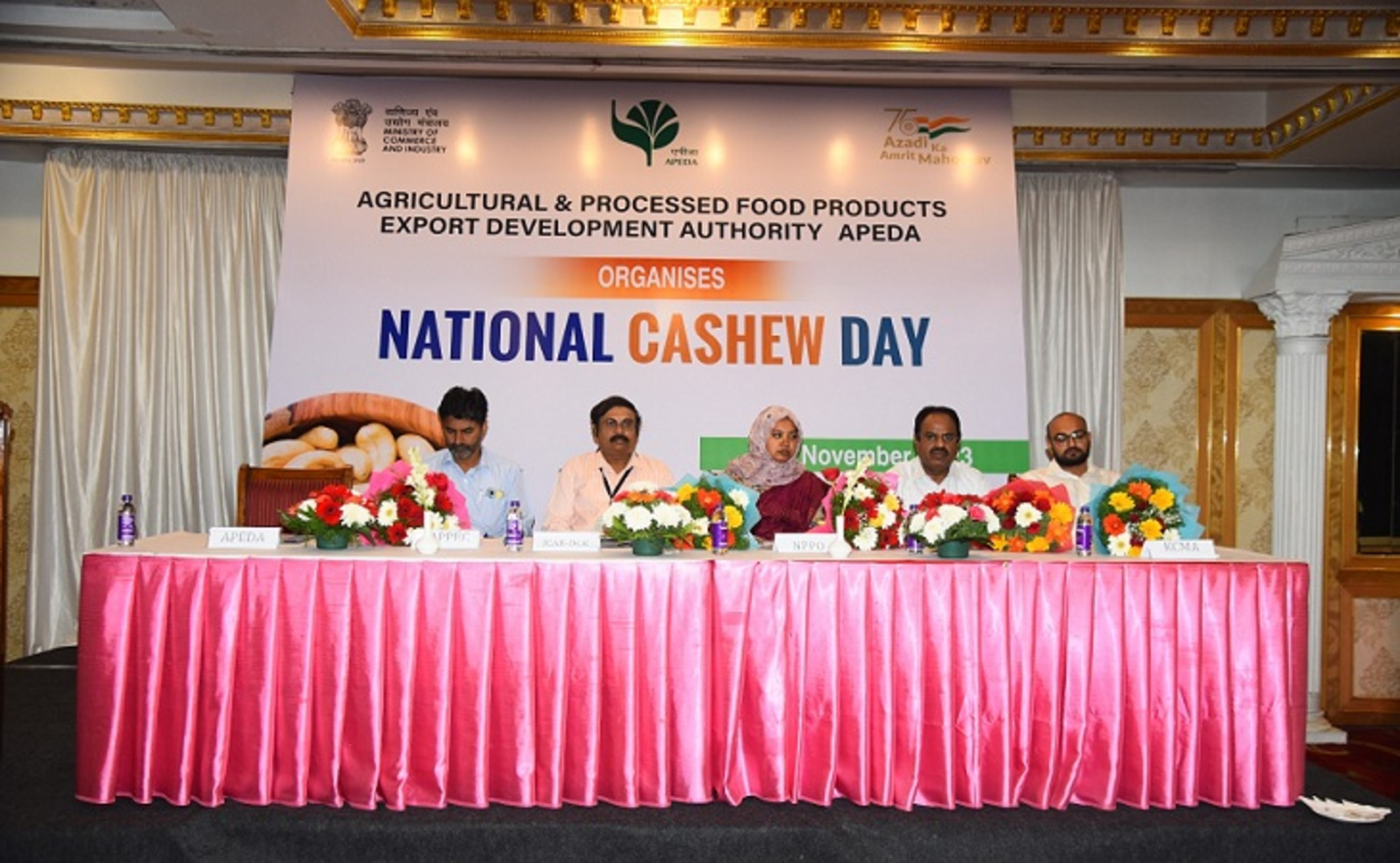Mumbai, Maharashtra: In a pivotal role as an export facilitator, the Agricultural and Processed Food Products Development Authority (APEDA), an organization under the Ministry of Commerce, Government of India, marked National Cashew Day by flagging off Cashew Nut shipments to Bangladesh, Qatar, Malaysia, and the USA on November 23rd, 2023.
Bangladesh received its inaugural shipment of Cashew Nuts from the state of Odisha, showcasing India’s prominence as the world’s second-largest producer and exporter of Cashew Nuts, with a market share exceeding 15%. Following Côte d’Ivoire, India holds a significant position in global cashew exports, with Vietnam as another major player.
India’s primary export destinations for Cashew Nuts include the UAE, the Netherlands, Japan, and Saudi Arabia. The leading Cashew-producing states in India are Maharashtra, Andhra Pradesh, Odisha, Karnataka, and Tamil Nadu. India predominantly exports Cashew Kernels, along with minor quantities of Cashew Nut Shell Liquid and Cardanol.
While the UAE and the Netherlands maintain their status as top export destinations, APEDA is actively exploring new markets in Japan, Saudi Arabia, the UK, Spain, Kuwait, Qatar, the USA, and European countries.
On the occasion of National Cashew Day, APEDA, in collaboration with its Regional Offices, organized programs in seven states, facilitating interaction sessions, networking opportunities, knowledge sharing, and discussions on industry trends and challenges. Mr. Abhishek Dev, Chairman of APEDA, addressed participants, emphasizing the significance of engaging in discussions about growth trends, production, export strategies, and challenges faced by the cashew sector.
Recognizing the increasing demand for cashew products, Chairman Abhishek Dev praised the hard work of farmers, processors, and exporters, noting the industry’s growth as a testament to their dedication.
In addressing challenges within the cashew industry, APEDA has engaged with stakeholders, focusing on modernization, processing facilities, logistics, quality, and international competition. The event served as a platform to connect with stakeholders in all cashew-producing areas, with APEDA planning further initiatives to regain its position in the global cashew trade.
Looking ahead, APEDA envisions interventions such as the automation of the cashew industry, professional training, registration of processing units, and the implementation of a traceability system, modeled after peanuts. APEDA is committed to disseminating cashew-related information to stakeholders and continuously exploring innovative methods, leveraging technology, and strengthening trade relations to ensure Indian cashew products reach global markets.


